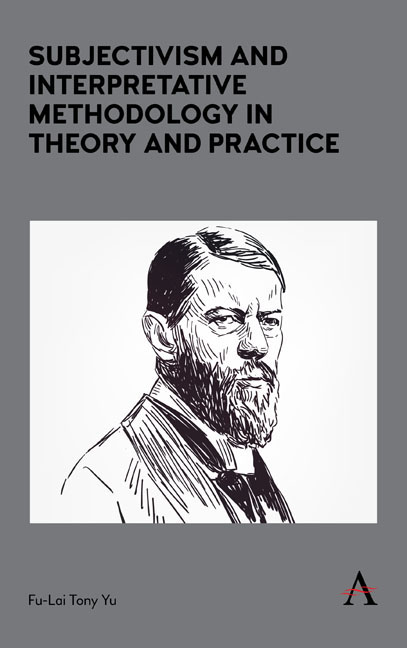5 - Human Action and Coordination in Two Subjectivist Perspectives
Published online by Cambridge University Press: 28 February 2020
Summary
Abstract. This chapter utilizes the contributions of Alfred Schutz and Friedrich Hayek to understand the coordination of human actions. In terms of Schutz’s phenomenology, this chapter argues that intersubjectivity allows economic activities to be coordinated. When the interpretive framework is disrupted by a novel stimulus, the human agent will project action in the future perfect tense. Through typification, a new stock of knowledge is established to enable the agent to solve new problems. The society's stock of knowledge in which agents share serves as a social coordinator. In terms of Hayek's cognitive psychology, during the perception process, the agent's mind is able to classify events coming in from the outside world. If incoming events are repeated, a pattern will register in the mind and become a rule of thumb in decision- making. If the mental map fails to give a sensible account of a novel event, the agent is then in a state of conflicting experience. The result is a gradual reclassification of events. New rules (and hence institutions) are re- established to help to solve coordination problems. This chapter concludes that both Schutzian and Hayekian perspectives can be synthesized into fruitful tools to understand economic and social phenomenon.
Introduction
It is widely known that the “economic man” in the contemporary neoclassical model is significantly different from human agents in the real world. Scholars in the neoclassical paradigm consider economic problems as economizing problems, involving the allocation of resources in terms of Paretian optimality. However, there is a growing concern that the neoclassical employment of the optimization technique to choose known alternatives under static uncertainty has limited use in understanding real- world problems. Since the publication of Coase's paper “The Nature of the Firm” in 1937, new institutionalists have begun to pay attention to coordination problems. This is particularly true in the early work of Oliver E. Williamson (1975), which argues that internal organization may be a superior mode of coordination whenever boundedly rational trading parties confront uncertainty (Langlois and Foss 1999). Unfortunately, the issue of coordination in association with structural uncertainty has slowly vanished in transaction costs economics. In particular, Langlois and Foss (1999) argue that the issues of coordination in production “have been overshadowed by a dominant interest in issues of incentive compatibility.”
- Type
- Chapter
- Information
- Publisher: Anthem PressPrint publication year: 2020



